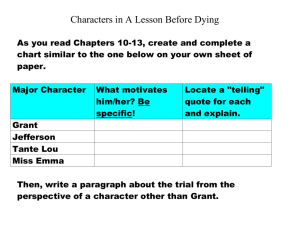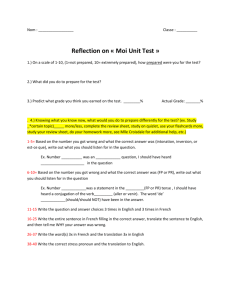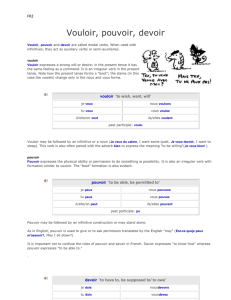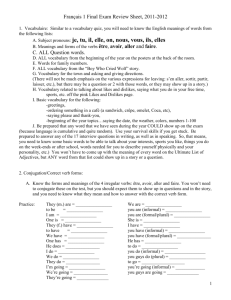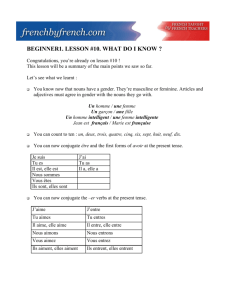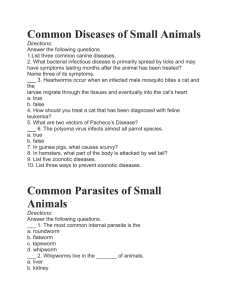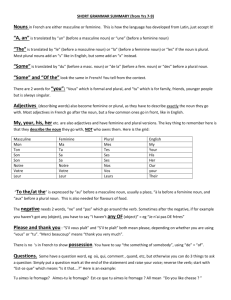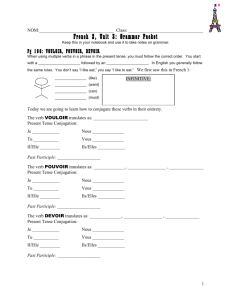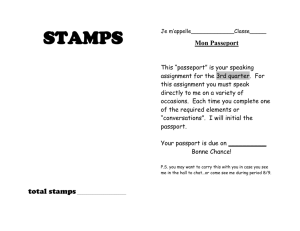Assignment 20
advertisement
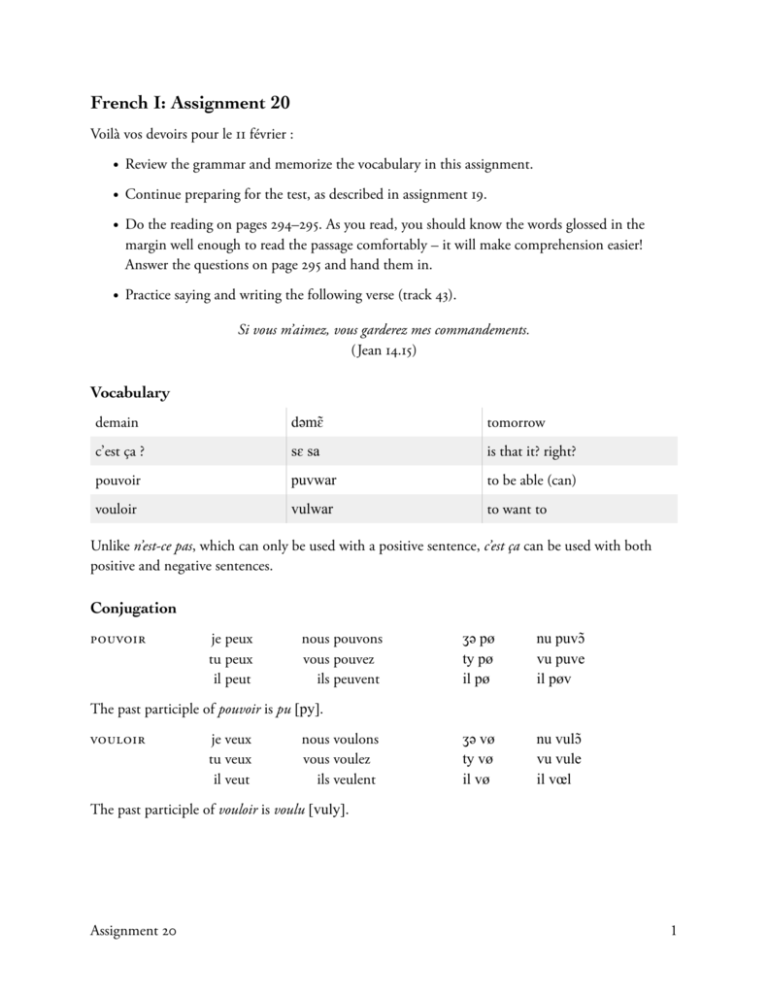
French I: Assignment 20 Voilà vos devoirs pour le 11 février : • Review the grammar and memorize the vocabulary in this assignment. • Continue preparing for the test, as described in assignment 19. • Do the reading on pages 294–295. As you read, you should know the words glossed in the margin well enough to read the passage comfortably – it will make comprehension easier! Answer the questions on page 295 and hand them in. • Practice saying and writing the following verse (track 43). Si vous m’aimez, vous garderez mes commandements. ( Jean 14.15) Vocabulary demain dəәmɛ̃ tomorrow c’est ça ? sɛ sa is that it? right? pouvoir puvwar to be able (can) vouloir vulwar to want to Unlike n’est-ce pas, which can only be used with a positive sentence, c’est ça can be used with both positive and negative sentences. Conjugation pouvoir je peux tu peux il peut nous pouvons vous pouvez ils peuvent ʒəә pø ty pø il pø nu puvɔ̃ vu puve il pøv ʒəә vø ty vø il vø nu vulɔ̃ vu vule il vœl The past participle of pouvoir is pu [py]. vouloir je veux tu veux il veut nous voulons vous voulez ils veulent The past participle of vouloir is voulu [vuly]. Assignment 20 1 Adverbial pronouns In assignment 12, you learned about the adverbial pronoun y, which often substitutes for prepositional phrases beginning with à. It comes before the verb, just like direct object pronouns. There is one other adverbial pronoun: en. It substitutes for prepositional phrases beginning with de – including the articles du, de la, and des. Est-ce que Tante Éloïse mange des sandwich ? Oui, elle en mange. Is Aunt Eloise eating sandwiches? Yes, she is (eating some). Est-ce que Tante Éloïse mange de la glace ? Non, elle n’en mange pas. Is Aunt Eloise eating ice cream? No, she isn’t (eating any). Est-ce que Tante Éloïse vais boire du vin ? Oui, elle vais en boire. Is Aunt Eloise going to drink any wine? Yes, she is going to (drink some). See the website for a link to more reading about en. More to come You’ve recently learned about the passé composé, and this week you learned that some verbs use être as the helping verb instead of avoir. Over the next few weeks, you will get used to choosing which helping verb to use. You will also learn about making the past participle agree in number and gender – something we haven’t done yet but should! Note that we will not meet on February 26. Instead, I will be sending a special set of exercises similar to what you did on November 6. Assignment 20 2
